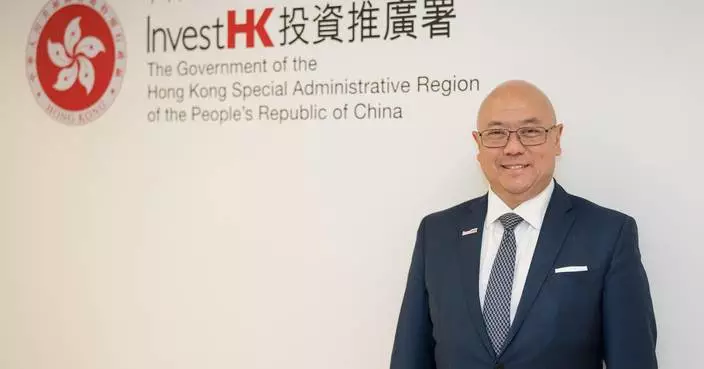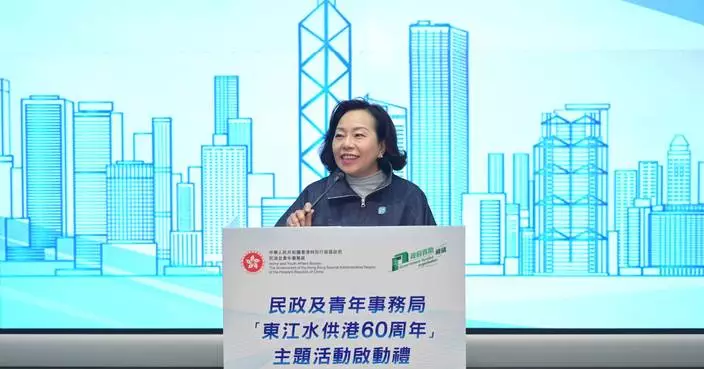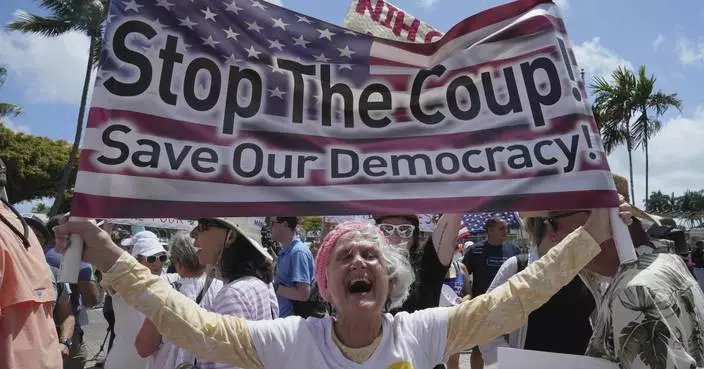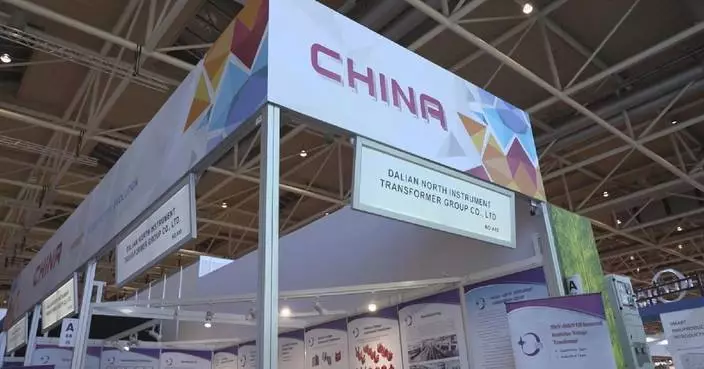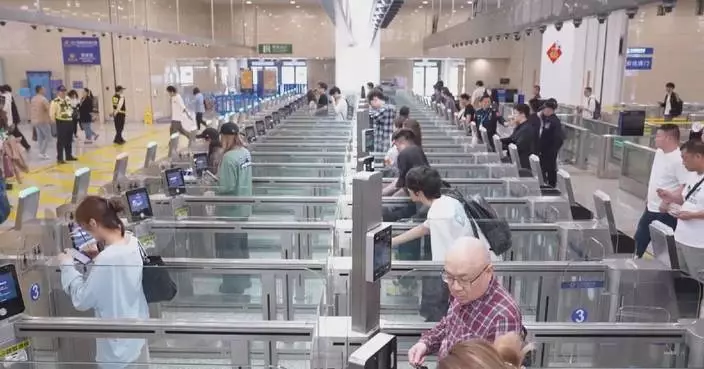Volume and price statistics of external merchandise trade in July 2024
Further to the external merchandise trade statistics in value terms for July 2024 released earlier on, the Census and Statistics Department (C&SD) released today (September 16) the volume and price statistics of external merchandise trade for that month.
In July 2024, the volume of Hong Kong's total exports of goods and imports of goods increased by 8.7% and 6.5% respectively over July 2023.
Comparing the first seven months of 2024 with the same period in 2023, the volume of Hong Kong's total exports of goods and imports of goods increased by 7.8% and 4.1% respectively.
Comparing the three-month period ending July 2024 with the preceding three months on a seasonally adjusted basis, the volume of total exports of goods and imports of goods increased by 0.6% and 2.0% respectively.
Changes in volume of external merchandise trade are derived from changes in external merchandise trade value with the effect of price changes discounted.
Comparing July 2024 with July 2023, the prices of total exports of goods and imports of goods increased by 3.9% and 2.8% respectively.
As regards price changes in the first seven months of 2024 over the same period in 2023, the prices of total exports of goods and imports of goods increased by 4.1% and 3.7% respectively.
Price changes in external merchandise trade are reflected by changes in unit value indices of external merchandise trade, which are compiled based on average unit values or, for certain commodities, specific price data.
The terms of trade index is derived from the ratio of price index of total exports of goods to that of imports of goods. Compared with the same periods in 2023, the index increased by 1.0% in July 2024 and 0.4% in the first seven months of 2024.
Changes in the unit value and volume of total exports of goods by main destination are shown in Table 1.
Comparing July 2024 with July 2023, increases were recorded for the total export volume to Vietnam (20.4%), the mainland of China (the Mainland) (16.7%) and the USA (12.2%). On the other hand, the total export volume to Taiwan (-8.0%) and India (-27.6%) decreased.
Over the same period of comparison, the total export prices to the USA (6.0%), the Mainland (5.3%), Taiwan (3.2%) and Vietnam (1.5%) increased. On the other hand, the total export prices to India decreased by 1.4%.
Changes in the unit value and volume of imports of goods by main supplier are shown in Table 2.
Comparing July 2024 with July 2023, increases were recorded for the import volume from Korea (27.3%), Taiwan (17.3%) and the Mainland (8.6%). On the other hand, the import volume from Singapore (-2.8%) and Japan (-5.7%) decreased.
Over the same period of comparison, the import prices from all main suppliers increased: Singapore (5.2%), Korea (5.2%), the Mainland (3.0%), Taiwan (1.5%) and Japan (0.6%).
Further information
Details of the above statistics are published in the July 2024 issue of "Hong Kong Merchandise Trade Index Numbers". Users can browse and download the report at the website of the C&SD (www.censtatd.gov.hk/en/EIndexbySubject.html?pcode=B1020006&scode=230).
Enquiries on merchandise trade indices may be directed to the Trade Analysis Section of the C&SD (Tel: 2582 4918).

Source: AI-generated images
Special traffic and transport arrangements for concert at Kai Tak Sports Park on April 8, 9, 11 and 12
The Transport Department (TD) today (April 6) said that, to facilitate the holding of a concert at Kai Tak Stadium of the Kai Tak Sports Park (KTSP) on the evening of April 8, 9, 11 and 12 (hereunder referred to as event dates), special traffic and transport arrangements will be implemented to provide convenience for spectators to travel to and from the KTSP. Cross-boundary travellers are urged to plan their journeys early.
A spokesman for the TD said, "We have been working with relevant bureaux/departments, the KTSP Limited, the event organiser and public transport operators to plan ahead the public transport services and ancillary transport facilities in advance, so that spectators can arrive at the venue conveniently and then leave in an orderly manner. As the traffic in the vicinity of the KTSP is expected to be heavy, spectators should opt for public transport and avoid driving. No parking space will be provided in the KTSP during the event period."
(1) Railway services
To facilitate the dispersal of an outflux of spectators, the service headway of the MTR Tuen Ma Line and East Rail Line (ERL) will be enhanced during the dispersal period on the event dates. Spare trains will be arranged to meet the additional demand.
Of note, for cross-boundary travellers, the last train to Lo Wu Station via interchanging at Tai Wai Station on the ERL will depart from Sung Wong Toi Station at 10.59pm and Kai Tak Station at 11.01pm. Travellers who miss the last train to Lo Wu Station may take the ERL to Sheung Shui Station and then the KMB route no. 276B or N73 to Lok Ma Chau (San Tin) Public Transport Interchange (PTI), and transfer to the Lok Ma Chau-Huanggang (LMC-HG) cross-boundary shuttle bus (Yellow Bus) for their journey to Shenzhen.
(2) Special bus route services
To provide convenience for cross-boundary travellers, two additional special bus routes will be introduced during the dispersal period on the event dates to Lok Ma Chau (San Tin) PTI and the Hong Kong-Zhuhai-Macao Bridge (HZMB) Hong Kong Port/Airport, thereby transferring to the Yellow Bus for their journey to Shenzhen and the HZMB shuttle bus (Gold Bus) for their return to Macao or Zhuhai, or departing from Hong Kong via the airport respectively. Including routes to major districts across the territory, a total of 11 special bus routes will be provided in the Sung Wong Toi Road Pick-up/Drop-off Area (PUDOA):
Type
Special bus route
Destination/major service areas
Ports
SP12
Lok Ma Chau (San Tin) PTI
A25S
HZMB Hong Kong Port/Airport
Hong Kong Island
SP10
Causeway Bay, Wan Chai, Admiralty, Central
SP11
Tai Koo, Shau Kei Wan, Siu Sai Wan
Kowloon
SP1
Kwun Tong, Tseung Kwan O (Hang Hau)
SP2
Mong Kok
New Territories
SP3
Kwai Chung, Tsuen Wan, Tsing Yi
SP5A
Tuen Mun
SP6
Yuen Long, Tin Shui Wai
SP7
Tai Po, Fanling, Sheung Shui
SP9
Tseung Kwan O South (LOHAS Park)
(3) Cross-boundary coach services and port traffic arrangements
The KTSP Limited will arrange cross-boundary coach services during the dispersal period on the event dates to facilitate travellers' return to the Mainland via the LMC/HG Port. Passengers should purchase tickets prior to the concert (on-site ticket sales not available during dispersal) and board their coach at the PUDOA on the G/F, Kai Tak Stadium, via the escalator outside Gate H, 2/F. They should refer to the operators' website (Eternal East Bus: www.myeebus.com/eebusfans; CTG Bus: m.hkctgbus.com/#/layout/home) for the latest ticket information.
A dedicated passage will be established at the LMC/HG Port when necessary to ensure the smooth operation of public transport services.
(4) Taxi services
On the above event dates, the Sung Wong Toi Road PUDOA will be opened from 2pm to 11.30pm for taxi pick-up/drop-off. The TD will mobilise the taxi trade for picking up passengers. The waiting time will be longer amid an outflux of spectators during dispersal and passengers' patience is appreciated. The KTSP Limited will open the Taxi Drop-off Area at Kai Tak Stadium and Kai Tak Arena during admission phase for drop-off only.
Spectators are advised to take heed of the real-time information via on-site broadcast and the "Easy Leave" (easyleave.police.gov.hk) as well as the latest traffic news through the TD's website (www.td.gov.hk), the "HKeMobility" mobile application, radio and television broadcasts.




